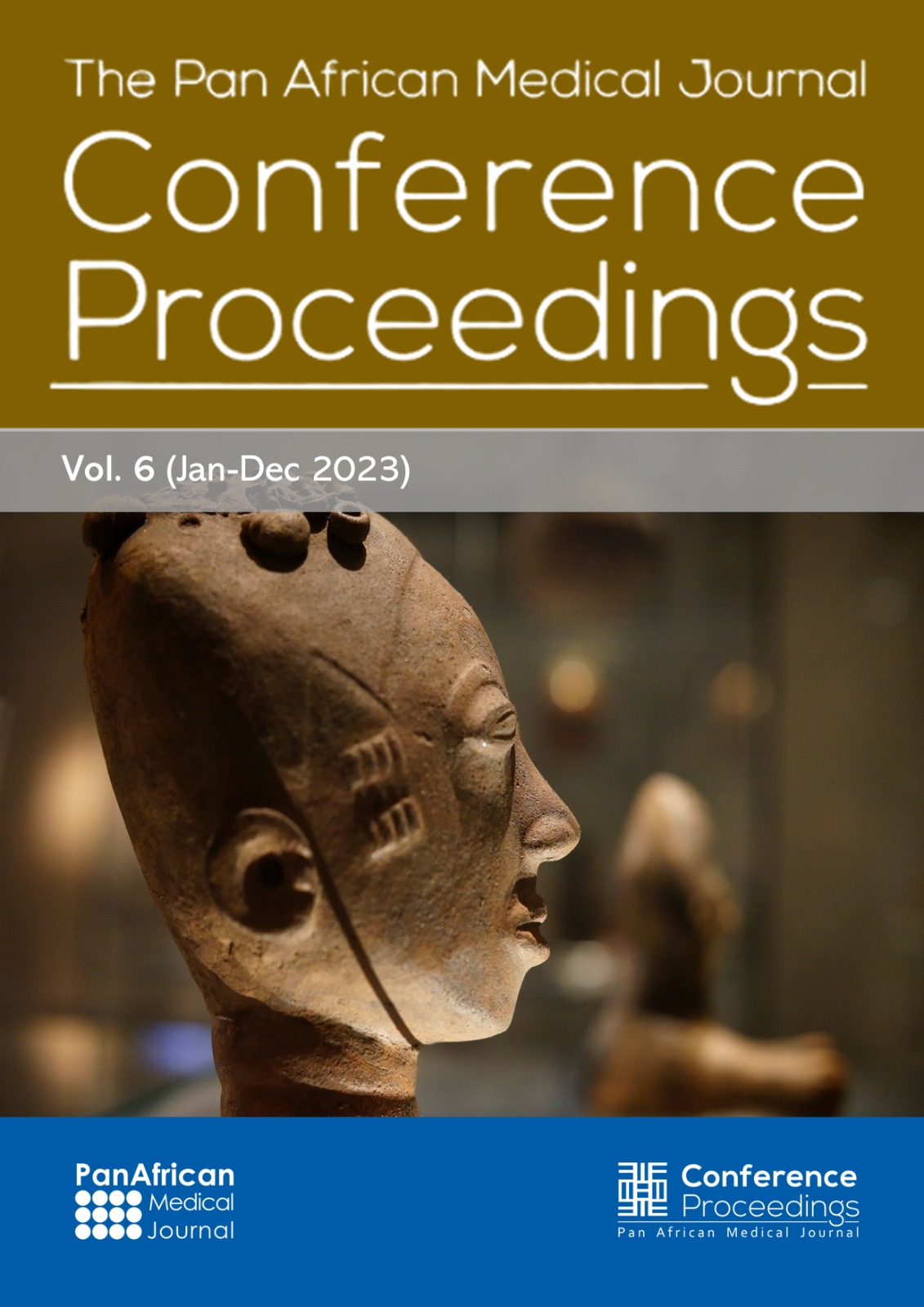Conference abstract
Sero-prevalence of Dengue virus and associated risk factors among healthy individuals in Karu Local Government, Nasarawa State, Nigeria, 2016
Pan African Medical Journal - Conference Proceedings. 2018:8(58).09
Apr 2018.
doi: 10.11604/pamj-cp.2018.8.58.640
Archived on: 09 Apr 2018
Contact the corresponding author
Keywords: Dengue fever, apparently healthy individuals, sero-prevalence, ELISA Technique
Opening ceremony
Sero-prevalence of Dengue virus and associated risk factors among healthy individuals in Karu Local Government, Nasarawa State, Nigeria, 2016
Adama Abubakar Ahmad1,&, Debola Olayinka1, Patrick Nguku1, Ahmad Said2, Muhammad Balogun3, Suleiman Idris2, Emmanuel Agogo4, Fatima Giwa2
1Nigeria Field Epidemiology and Laboratory Training Programme, Abuja, Nigeria, 2Department of Microbiology, Ahmadu Bello University Zaria, Nigeria, 3African Field Epidemiology Network, (AFENET) Nigeria, 4Nigeria Center for Disease Control, Abuja, Nigeria
&Corresponding author
Adama Abubakar Ahmad, Nigeria Field Epidemiology and Laboratory Training Programme, Asokoro, Abuja, Nigeria
Introduction: Dengue is a mosquito-borne viral infection that mimics malaria and other febrile illnesses and is often misdiagnosed as malaria especially where routine diagnosis of dengue is not done. Recently global incidence of dengue has grown dramatically putting half of the world’s population at risk (WHO). This study aimed at determining the prevalence of dengue infection, identifying most at risk population and associated factors among the study population.
Methods: descriptive cross-sectional study was conducted among apparently healthy individuals at Karu LGA, Nasarawa State using multistage sampling. Questionnaires were administered and samples obtained and tested using ELISA IgG technique. Data was analyzed using Epi-info-7 at P < 0.05.
Results: there were 354 recruited participants, 186 (52.5%) males. Antibodies against dengue virus was found in 4.8% (95% CI: 2.8% - 7.6%) of all the samples. About 4.8% (95% CI: 2.2% - 9.0%) of both males and females tested positive for dengue antibodies. Age group > 45 years and farmers have the highest sero-prevalence 22.6% (95% CI: 9.6% - 41.1%) 18.6% (95% CI: 8.4% -33.4%), respectively for dengue antibodies. Also, individuals with informal education had sero-prevalence of 26.3% (95% CI: 9.1% - 51.2%) compared to individuals with tertiary education 6.1% (95% CI: 0.74% - 20.2%).
Conclusion: there was high prevalence of dengue among the study population. We identified age group 45years, lack of formal education, and local farming as the factors for higher risk to Dengue fever. We recommend improved dengue surveillance, inclusion of dengue testing in health facilities for febrile illnesses.








